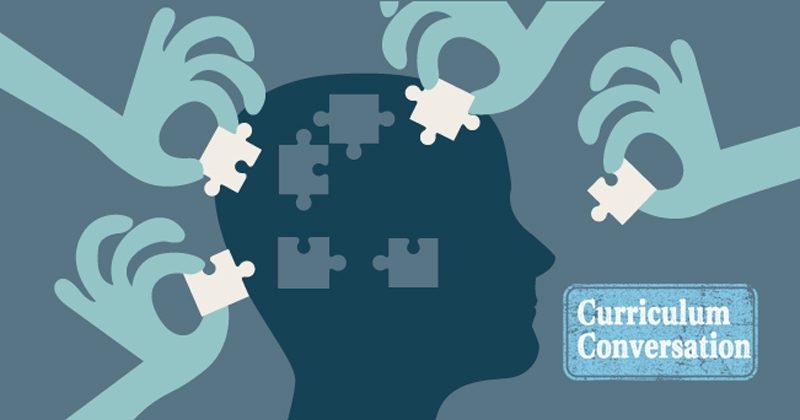The curriculum and assessment review prompted by the change of government has once again opened up debate about the nature of what we teach in schools. Sadly, this debate is characterised by the same rigid positions that have been vying for dominance for decades. But what if we could finally find a way out?
Those of us who were teaching under the previous Labour government will well remember the focus on key skills and a more progressive view of the curriculum. While this had real benefits for employability and soft skills, what seemed to be lacking was a sense of the purpose of subjects beyond taking exams.
The Conservative government’s more traditional approach over the past 14 years focused instead on a knowledge-rich curriculum, steeped in factual recall but lacking in a broader educational vision for young people and their holistic development.
Some fear the pendulum of curriculum thinking is swinging again, away from the knowledge-led curriculum of the past decade and back towards the more progressive thinking of the past. Mere mention of ‘oracy’ has already resulted in innumerable blog posts and a swathe of experts ready to deliver whole-school CPD on the matter.
Only knowledge-rich purists and child-centred activists can fail to see that this setup is wrong. In the course of researching my latest book, What are we teaching?, I became increasingly convinced that we might find a way out of our polarisation by framing curriculum discussions around the ‘capability approach’.
This concept applies the Nobel prize-winning ideas of Amarya Sen in development economics to education. Rather than judging the success of schooling on instrumental measures such as GCSE pass rates, it would require us instead to focus on what an education allows young people to do, how they can think and be in the world.
This is not expressed in terms of key skills but in terms of real freedoms to think critically and creatively. Subjects play a central role in this curriculum vision.
Subjects play a central role in this curriculum vision
Rather than being seen as an end in themselves, often expressed through grades achieved in high-stakes exams, the real benefits of studying a subject should drive the curriculum.
This takes us beyond those ‘statements of intent’ that we have all written for our subjects by looking at the unique educational benefits – the disciplinary knowledge, skills and values – that come from studying them.
On the one hand, this can be expressed as the empowering or ‘powerful’ knowledge of our subjects, in line with the work of Michael Young and others that has been dominant since Michael Gove’s reforms. Subject specialist teachers with a deep understanding of their subject and its role in the curriculum are key to the capability approach.
On the other hand, this thinking can also help create a more inclusive curriculum as it enables all young people to access an enriching educational diet. Under this approach all students can gain a set of ‘educational capabilities’ that will be of lasting benefit to them.
These could include capabilities like finding new ways to make sense of themselves and the world, assessing competing claims to truth, thinking critically, and developing their agency.
The key is that these are entirely distinct from the types of basic statements of generic key skills that have seen previous incarnations dismissed as ‘soft skills’. A capability-based curriculum is not a place for the expression of the latest fad, but for desirable qualities derived from the deep study of school subjects.
Thinking about curriculum in this way takes us beyond our obsession with grades and the idea that subjects are simply a means to an examinable end. It also avoids the trap of doing away with subjects completely in favour of some vacuous key skill that someone, somewhere has deemed valuable.
The curriculum and assessment review provides an opportunity for a once-in-a-generation change to re-examine what young people in schools are learning and, and most importantly, why.
The capability approach can provide a language with which to frame these much-needed discussions about the purpose and value of what we are teaching – and finally move us beyond the stale dichotomy around this vital debate.
This article is the eighth in a series of sector-led, experience-informed recommendations for the Francis review of curriculum and assessment. Read them all here












Your thoughts